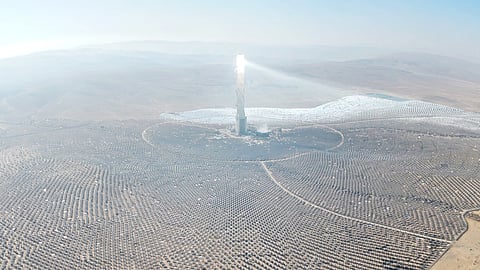
- NEWS
- the EDIT
- COMMENTARY
- BUSINESS
- LIFE
- SHOW
- ACTION
- GLOBAL GOALS
- SNAPS
- DYARYO TIRADA
- MORE

Member states of the United Nations are striving to meet the 17 UN Sustainable Development Goals (SDGs) by the 2030 deadline, progressing at varying paces. For Israel, achieving these goals has become more challenging due to its ongoing conflict with Hamas terrorists in Gaza. Nevertheless, significant achievements are being made.
In just three years, Israel’s University of Haifa (UoH) climbed in the Times Higher Education Impact Rankings (THEIR) from 400th to 95th, as reported by Israel National News. THEIR evaluates universities based on their contributions to the SDGs, and UoH’s substantial progress across these goals enabled it to break into the top 100 in the 2024 edition of the index.
UoH Rector and incoming president, Prof. Gur Elroy, attributes this advancement to the institution’s hard work and its reputation as an academic melting pot. UoH’s 18,000-strong student body is highly diverse, including students from Jewish, Muslim, Christian, Baha’i, Druze, Bedouin, and other backgrounds.
The university ranks 17th globally in SDG 5 (gender equality), 32nd in SDG 16 (peace, justice, and strong institutions), and 68th in SDG 4 (quality education).
Israel’s progress in other SDGs is driven by technological innovation. Leading this effort is the Israel Innovation Institute (III), a non-profit organization that collaborates with investors, international corporations, and governmental and international organizations to develop impactful technologies for Israel and beyond.
III’s work is categorized into six ecosystems focusing on transportation, food, health, desertification, climate adaptation and mitigation, and the ocean. Noteworthy among these is III’s initiative to address desertification, which Israel has successfully reversed through innovative solutions enabling sustainable living in arid climates.
Partners such as the Merage Foundation Israel, the Ministry of Environmental Protection, and Ben Gurion University are part of the DeserTech community with III, creating solutions at their hub in Be’er Sheva, located in the Negev region, part of the world’s desert belt. Institutions in the Negev region are already at the forefront of research addressing climate change across various sectors.
Solutions to Desertification
According to the latest Intergovernmental Panel on Climate Change report, drylands will likely face increased poverty, food insecurity, disease burdens, and conflict due to climate change and desertification. These challenges will also impact the international community beyond desert regions.
As the world becomes more arid, desertification and climate adaptation solutions have significant market potential. Entrepreneurs, policymakers, and governments are seeking ways to mitigate the effects of climate variations, which already affect over 3 billion people. DeserTech has grown to include at least 65 startups addressing desert challenges, with investments totaling $1.84 billion, including $347 million from Israeli sources.
Some of its solutions for extreme climate conditions, such as temperature shifts, sand or dust storms, wildfires, and intense sun, include indoor farming, crop adaptation, desert aquaculture, livestock management, innovative foods (desert novel ingredients), water reservoir management, solar energy generation, solar site management and efficiency, indoor climate control and energy optimization, energy storage, energy-efficient construction materials, shading and cooling, fire mitigation, sand/dust storm management, and extreme weather forecasting.
To combat land degradation issues like soil salination, erosion, flash floods, and contamination, DeserTech’s solutions include soil restoration, land management, floodwater usage, crop protection and nutrition, desert forest management, soil water retention, water contamination treatment, agrivoltaic systems, waste management of photovoltaic systems, conservation and revival of natural resources (water and biodiversity), and flash flood management.
An example of a DeserTech startup is GroundWork BioAg, which develops and sells mycorrhizal inoculants for commercial farming. These inoculants, such as the company’s Rootella and Dynomyco products, contain concentrated and vigorous beneficial fungi that can enhance soil nutrient uptake in plants, increase crop yields, improve resistance to various stresses, and reduce fertilizer requirements.
Without solutions, desertification could lead to widespread food insecurity, mass migration and social unrest. Through III’s DeserTech initiative, this challenge is being met by a community of startups, researchers, industry leaders, international organizations, and policymakers who are developing innovative solutions.
